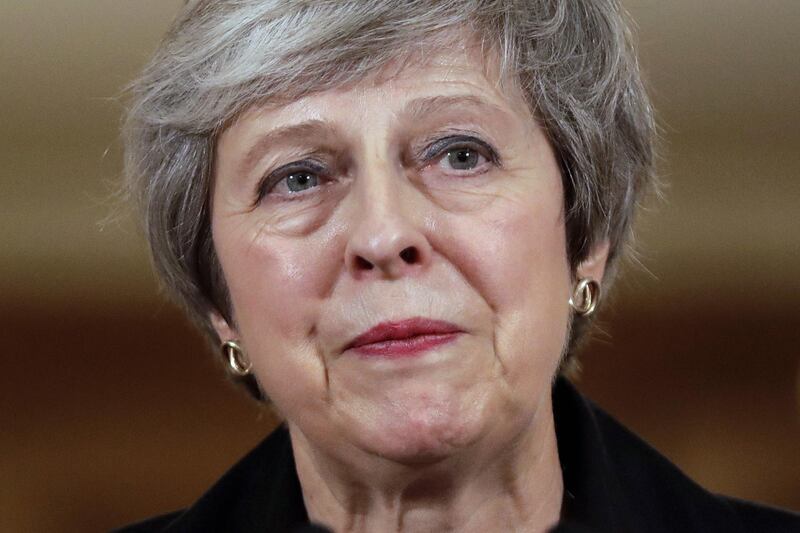In his typically florid literary style, the 19th-century American writer and philosopher Ralph Waldo Emerson argued that a “foolish consistency is the hobgoblin of little minds”. He meant that adhering to principles was fine but when circumstances or facts change, sticking to your guns amounts to potentially catastrophic small-minded stubbornness.
Former prime minister Margaret Thatcher had a reputation for consistency. She refused to give in when IRA terrorist prisoners went on hunger strike and she triumphed in a long battle with Britain’s striking coal miners. These decisions were deeply divisive but in both cases, her stubbornness won through. The IRA called off the hunger strikes. The miners were forced back to work, their union neutered. Mrs Thatcher was stubborn in pursuit of clear objectives. When asked to perform a U-turn, she famously quipped: “You turn if you want to. The lady’s not for turning.”
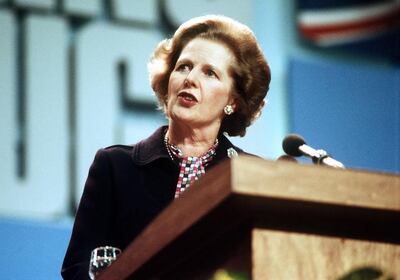
In Downing Street right now, Britain has in Theresa May a prime minister whose "consistency" is more of the foolish kind that Emerson had in mind. Mrs May has consistently said that she will "deliver" Brexit. But unlike Mrs Thatcher's clear objectives, neither Mrs May's government nor the Conservative party – nor, in fact, the country – have ever agreed exactly what Britain leaving the European Union actually means. So "delivering" an undefined objective is a bit like Amazon saying it will deliver a parcel to you, without you knowing or agreeing exactly what you are paying for. This week, the British people saw what was inside their package and some now want a refund.
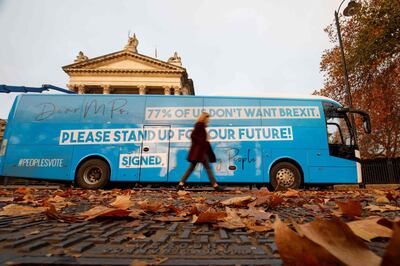
Ever since the referendum in 2016, Brexit-supporting politicians have fantasised about the outcome as if it were some kind of mythical beast, variously calling for a Norway option – membership of the European Economic Area (EEA), with full access to the single European market but no say in EU politics – or a "Canada-plus” or "Super Canada" model, based on Canada’s free trade agreement with the EU, officially known as the Comprehensive Economic and Trade Agreement, which would remove 99 per cent of customs duties on goods between the two trading blocs but not based on a single market. There have been suggestions of an alphabet soup of EEA, EFTA (European Free Trade Association) and WTO (World Trade Organisation) rules, all with wonderful advantages for Britain.
But, this week, the Brexit unicorn, that mythical beast, died. Instead, Mrs May’s government has produced its own hugely detailed option based on long negotiations – an option that has united leave supporters and their remain opponents, because both sides hate it.
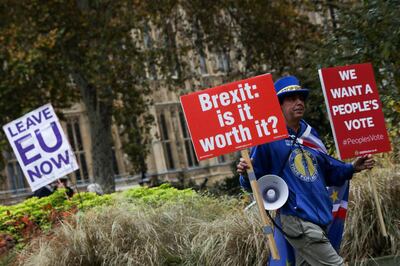
This is Mrs May's own fault. When she became prime minister in 2016, she panicked and imposed a legal Brexit deadline of March 2019. Her ministers and MPs back then offered false hopes and ludicrous ideas. Liam Fox, appointed Secretary of State for International Trade by Mrs May, promised an EU trade deal would be "one of the easiest in human history". Michael Gove, who was then Justice Secretary, claimed the country would be stronger, adding: "We hold all the cards and we can choose the path we want." Conservative MP John Redwood said Brexit would be "quick and easy". Former Brexit Secretary Dominic Raab, who stepped down last Thursday claiming that Mrs May had failed to stand up to a bullying EU, previously promised to "unite the country". Boris Johnson said that Brexit would save money for the National Health Service and that Britons could "have [their] cake and eat it".
In the real world, political leaders in Scotland and Northern Ireland are furious. Some want to break up the United Kingdom. Many Scots want a new independence vote. Some voters in Northern Ireland want to join the Irish Republic.
The “quick and easy” Brexit has been a nightmare. Easy trade deals simply haven't materialised. Those who wish to remain in the EU are now a majority across the UK, according to opinion polls. Ardent Brexit supporters see Mrs May’s deal as a betrayal because it means formally leaving the EU’s decision-making bodies while still paying money and continuing to abide by EU rules, without being able to change those rules. Britain, they say, would be a “vassal state”.
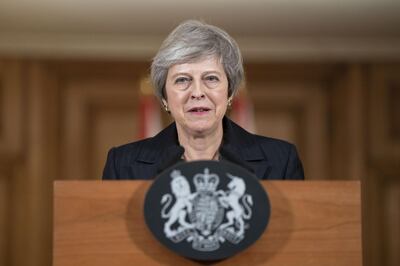
Beset by resignations from her government, Mrs May's response to widespread criticism has been to plough on, echoing Emerson's "foolish consistency". She says she has produced "truly the best deal for Britain" but she cannot say that it is better than the deal Britain already has within the EU. She knows – as it must be clear to everyone – that her deal is not better than the status quo. It will make the country poorer. It already has. Some important businesses are leaving, or planning to leave. The pound has slipped against other major currencies. And now Mrs May leads a disunited government and a fractured Conservative party, governing an increasingly divided country while pursuing complicated political negotiations.
Mrs May now needs the support of 320 out of 639 voting MPs in Parliament to push through her deal. Politics watchers think she can count on only about 280 of those votes. Her government – and her job – is hanging by a thread.
In the end, Mrs Thatcher fell under the spell of Emerson’s hobgoblins and their foolish consistency. After a decade in power, she introduced the poll tax, which was so unpopular it provoked street riots and widespread refusals to pay. She stubbornly stuck with this failed idea until her Conservative colleagues got rid of her and repealed her hated new tax.
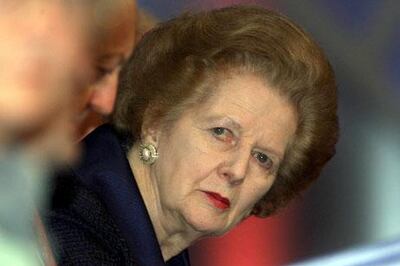
The same fate awaits Mrs May. If she won’t change her mind about Brexit – and that seems unlikely – her time as prime minister might soon be up. And unlike Mrs Thatcher, who had 10 years of transforming Britain as her legacy, Mrs May’s political epitaph might well consist of three words: "Tried Brexit. Failed."
Gavin Esler is a journalist, author and television presenter
